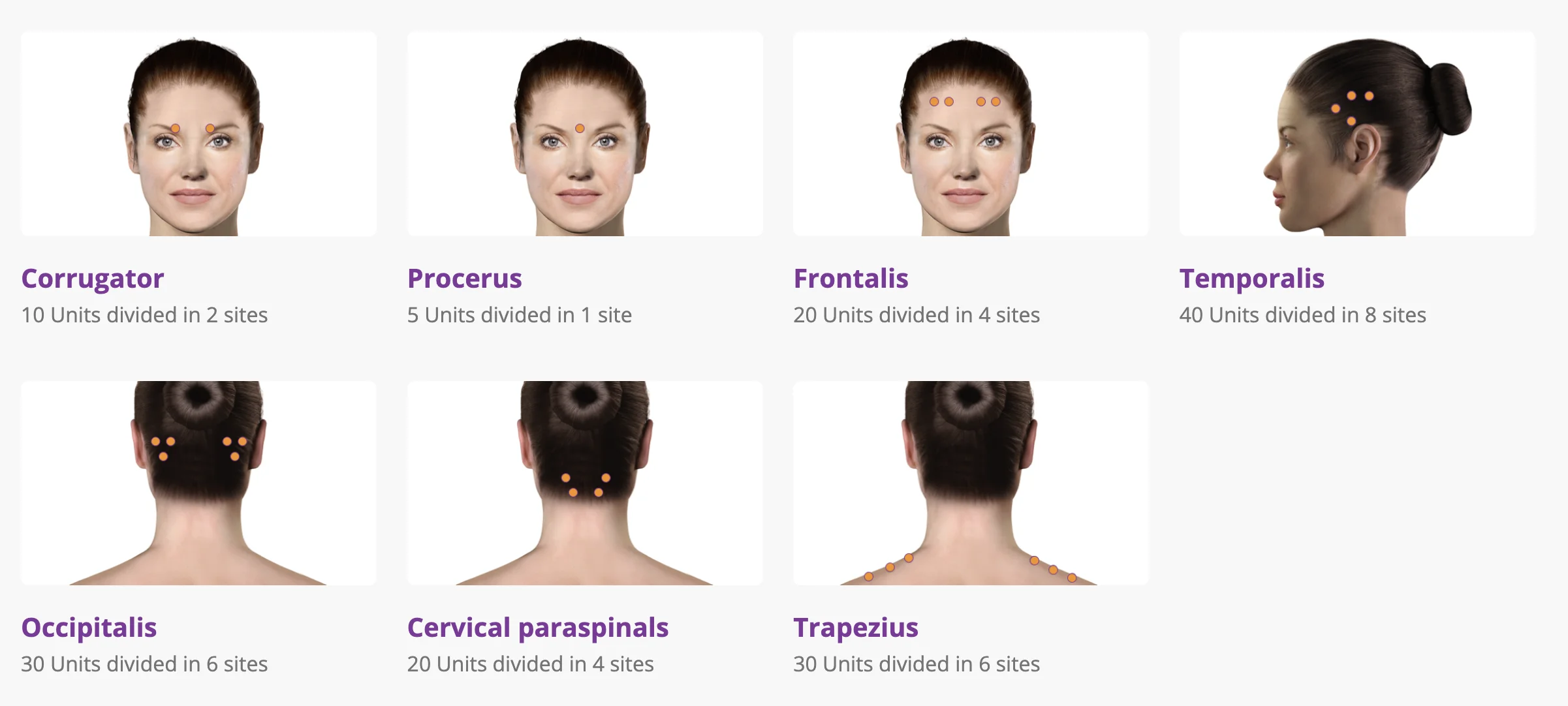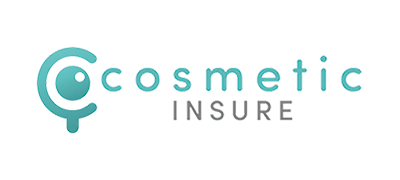Chronic migraines are debilitating headaches that occur on 15 or more days each month, with each headache lasting four hours or more. These migraines can significantly impact your quality of life, making it difficult to perform daily activities and affecting your overall well-being.
Botox (Botulinum Toxin) is an FDA-approved treatment for chronic migraines. Originally known for its cosmetic uses, Botox has been found to effectively reduce the frequency and severity of chronic migraines by targeting specific muscles and nerve pathways involved in headache pain.
At Dr Aesthetica, we understand the debilitating impact that chronic migraines can have on your daily life. While hospitals and traditional healthcare facilities provide essential services, they are often overwhelmed with the high demand for migraine treatments, leading to longer waiting times and extended gaps between treatments. Here’s why choosing Dr Aesthetica for your migraine Botox treatment can make a significant difference:



"*" indicates required fields
Chronic migraines, which affect approximately 2% of the population, are defined as headaches occurring on at least 15 days per month, with at least 8 of those days being migraines. Botox, when carefully administered in medical doses, has been clinically proven to reduce the frequency of migraines and improve the quality of life for those suffering from chronic migraines. According to the American Migraine Foundation, patients reported a 50% reduction in headache days after two Botox courses.
At Dr Aesthetica, we offer this highly advanced medical procedure. It requires significant experience and expertise as it involves intramuscular injections into the head and neck near several major arteries, veins, and nerves that supply the brain.
For those suffering from chronic migraines, Botox treatment at Dr Aesthetica can offer significant relief and an improved quality of life. Contact us today to schedule your consultation and learn more about how we can help you manage your migraines effectively.
Botulinum toxin type A, commonly known as Botox, is a purified neurotoxin derived from the bacterium Clostridium botulinum. It works by blocking nerve signals to muscles, thereby reducing their movement. Clinical-grade medical Botox is a prescription-only medication that is extracted, purified, and diluted from the original paralytic agent. Once injected, it temporarily weakens the contraction of the targeted muscle, resulting in the softening and relaxing of lines and wrinkles caused by muscle activity. Although there is no reversal agent, Botox is naturally metabolised over months.
While the exact mechanism by which Botox alleviates migraines is not definitively known, several theories exist. One suggests that Botox may relax muscles around the head, reducing blood pressure within the brain. Another theory proposes that Botox might reduce the nerves’ ability to send pain signals during a migraine.
The National Institute for Clinical Excellence’s systematic review of trials involving patients with chronic migraines found that those who received Botox injections in 31-39 sites in their head and neck experienced a significant reduction in headache frequency and an improvement in their quality of life compared to those who did not receive Botox.
One proven dose divided into 31 proven injection sites across 7 specific head and neck muscle areas that may be associated with migraine. The treatment will include 31 small intramuscular injections across the forehead, sides of the head and the neck with high dose Botox. The muscles targeted will include: corrugator, procerus, frontalis, temporalis, occipitalis, cervical paraspinal muscle group and trapezius.

31 Proven injection Sites
| Treatment Name | Price |
| Migraine Botox | From £450 |
The treatment will include 31 small intramuscular injections across the forehead, sides of the head and the neck with high dose Botox. The muscles targeted will include: corrugator, procerus, frontalis, temporalis, occipitalis, cervical paraspinal muscle group and trapezius.
Chronic migraines are headaches that occur on 15 or more days per month, with at least 8 of those days being migraine headaches. They can be extremely debilitating and significantly impact daily life.
Botox helps by blocking the release of certain chemicals involved in pain transmission and preventing the activation of pain networks in the brain. It is injected into specific areas around the head and neck to reduce the frequency and severity of migraines.
Yes, Botox is FDA-approved for the treatment of chronic migraines. It has been clinically proven to reduce the number of headache days and improve the quality of life for chronic migraine sufferers.
During the treatment, a healthcare provider will administer Botox through a series of small injections into specific areas of your head and neck. The procedure typically takes about 15-20 minutes and involves around 31 injections.
Botox treatments for chronic migraines are usually administered every 12 weeks. Consistent treatment is important for maintaining the benefits and preventing the return of frequent migraines.
Many patients begin to notice a reduction in the frequency and severity of their migraines within 2-4 weeks after the first treatment. Full benefits are typically observed after the second treatment cycle.
Common side effects include temporary pain, swelling, or bruising at the injection sites. Some patients may experience neck pain or headaches following treatment, but these usually resolve on their own.
Botox is suitable for adults who experience chronic migraines, defined as having headaches on 15 or more days per month, with at least 8 days being migraines. It is not recommended for pregnant or breastfeeding women, or those with certain neurological conditions.
Yes, TMJ (temporomandibular joint) pain can lead to migraines. The temporomandibular joint connects your jaw to your skull and plays a crucial role in functions like chewing, speaking, and yawning. Dysfunction or pain in this joint, often referred to as TMJ disorder or TMD, can have various causes, including stress, teeth grinding (bruxism), misalignment of the teeth or jaw, and arthritis.
Here’s how TMJ pain can contribute to migraines:
If you suspect that TMJ pain is contributing to your migraines, it’s important to address both conditions to achieve relief. Here are some strategies:




